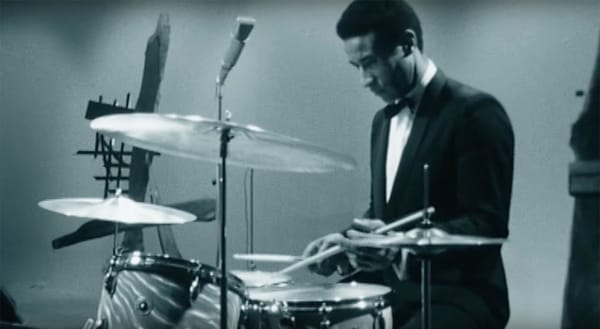The Sickness Unto Death
on Kierkegaard and despair

1.
Søren Kierkegaard wrote about despair in his book The Sickness Unto Death.
Writing under the name Anti-Climacus, he begins his analysis of despair by stating that the human “is a synthesis of the infinite and the finite, of the temporal and the eternal, of freedom and necessity.” He refers to these poles as a “dialectical relationship,” which “relates itself to itself.”[1]
The eternal in the human being, for example, reaches beyond itself, but is pulled back down by the temporal, which makes just as much a claim on the human person as the eternal. Despair occurs when the self errs on one side to the neglect of the other; for example, when there is infinitude but not finitude. He explains:
“[T]he self is a synthesis in which the finite is the limiting factor, and the infinite is the expanding factor. Infinitude’s despair is therefore the fantastical, the limitless.”[2] The fantastical is engaged through the imagination. When the self extends itself to infinity through the imagination, it despairs because there is no limit, and therefore no reality tied to the imagination. The finite self is indefinitely deprived of the object for which its infinite imagination longs, and so it despairs.
Thanks for reading Jack’s Substack! Subscribe for free to receive new posts and support my work.
2.
Despair also comes from going the other direction, when there is finitude but not infinitude. Here, one loses one’s self “not by evaporation in the infinite, but by being entirely finitized, by having become, instead of a self, a number, just one man more.” This means the self “does not dare to believe” in itself, but rather takes its finitude to be absolute.[3] The self thus denies its own eternity, and despairs. The self exists as eternal, irreducible, and yet renders and reduces itself to the hopelessly temporal.
3.
Anti-Climacus then speaks of this interplay in terms of possibility and necessity: “The despair of possibility is due to lack of necessity,” and, “The despair of necessity is due to lack of possibility.”
He explains,
“Just as finitude is the limiting factor in relation to infinitude, so in relation to possibility it is necessity which serves as a check.” When the self seeks after possibility, there comes a point when it exceeds its grasp, so there is no necessity to the possibilities it seeks. “At last it is as if everything were possible,” he says, “but this is precisely when the abyss has swallowed up the self,” for everything might be possible, but that does not mean those possibilities have any necessity, any claim to actuality.[4] The self despairs because there is too much possibility without necessity.
4.
On the other hand, there can be too much necessity. Lacking possibility, the self “lives in a certain trivial province of experience as to how things go, what is possible, what usually occurs.” The present closes down on itself. Lacking possibility, the self accepts the status quo as absolute. It “carries possibility around like a prisoner in the cage of the probable.”[5] As the self is a synthesis of the finite and the infinite, so when the possible and the infinite are denied in favor of the probable and the necessary, then the self inevitably despairs.
5.
For Anti-Climacus, the only hope of overcoming despair is for the self to be “grounded transparently in the Power which posited it.”[6] Faith in God is the antidote to despair, for with God all things are possible.
6.
In my master’s thesis, I agreed with Anti-Climacus. I believed theologians needed to express faith in the God for whom all things are possible to avoid despair, and I criticized certain postmodern theologians for offering “a prescription for despair” by denying the supernatural. Today, I see things differently.
7.
For Anti-Climacus, despairing over something earthly is mistaken, for what we are really despairing about is the eternal. We are a synthesis of the finite and the infinite. To despair over something earthly is to deny the infinite in us, and so to “despair at not willing to be oneself.”[7] Today, I think this formulation is too otherworldly.
For Anti-Climacus, the earthly doesn’t matter so much as the eternal. He says faith in God is “the Christian’s bliss.”[8] God is thus a deus ex machina for him, a stopgap that overcomes despair through otherworldliness.
But what if we refuse to swap the earthly for the eternal? What if we take the earthly as our point of departure? What if we deny recourse to another world to alleviate our anxieties about the present? What if we regard this world as our God-given calling?
8.
Dietrich Bonhoeffer criticized theologies that reduce God to a stopgap or deus ex machina by referencing ultimate questions like despair as things to which only God has an answer. He considered this a “religious” impulse, and sought instead a “religionless-worldly” faith.[9] Friedrich Nietzsche criticized theologians along similar lines: “into every defect had they put their illusion, their stop-gap, which they called God.” Nietzsche also criticized theologians for making recourse to an “other world.”[10]
9.
I contend that Kierkegaard’s faith in God for whom all things are possible falls into his “despair at willing to be oneself.” In this despair, one takes the eternal in oneself seriously, and adheres to one’s infinite imagination. The problem with Kierkegaard’s God for whom all things are possible is that this God lacks necessity. The miraculous may be possible but it is certainly not necessary. At every instant, we are thrown back to the finite, to the natural world as our plane of existence.
10.
One does not succeed in escaping finitude, even conceptually through faith in the eternal. What recourse to the eternal secures, as Kierkegaard says, is “bliss.” But this bliss comes at the expense of earthly reality. One person’s bliss is another’s despair, for bliss enables one to abide the brokenness of the status quo, the sufferings of the present time, the powers of this present darkness. Those powers thus remain untouched.
Wouldn’t it be a greater faith that proved itself formidable to the powers that be? Wouldn’t it be a greater faith that sought the transformation of the finite through infinite imagination? Is not the synthesis of possibility and necessity found in change? And thus, wouldn’t a greater faith be that which provokes bold new action?
Thanks for reading Jack’s Substack! Subscribe for free to receive new posts and support my work.
Notes:
[1] Søren Kierkegaard, Fear and Trembling and Sickness unto Death, trans. Walter Lowrie (Princeton: Princeton University Press, 1954), 146.
[2] Kierkegaard, 162f.
[3] Kierkegaard, 166f.
[4] Kierkegaard, 168—170.
[5] Kierkegaard, 174f.
[6] Kierkegaard, 147.
[7] Kierkegaard, 182ff.
[8] Kierkegaard, 148.
[9] See Dietrich Bonhoeffer, Letters and Papers from Prison, trans. Isabel Best, et al. (Minneapolis: Fortress Press, 2015), 352—357, 395–397, 438—441, 461—467, 484—487.
[10] See Friedrich Nietzsche, Thus Spoke Zarathustra, trans. Thomas Common (New York: Union Square & Co., 2021), 122, 51—54.



